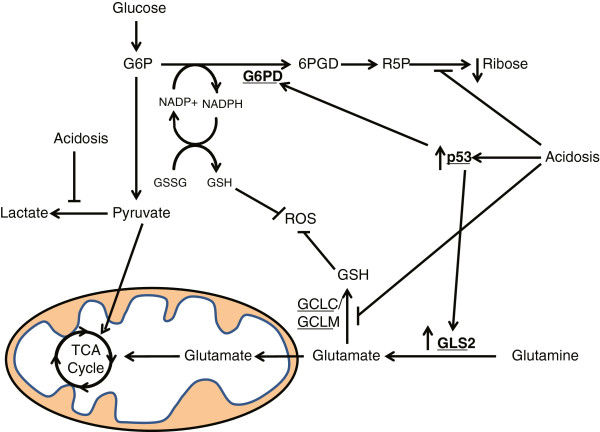Figure 7.

Overview of the metabolic reprogramming mediated by p53 under acidosis conditions. Glucose-6-phosphate dehydrogenase (G6PD) is induced under acidosis by p53, which increases nicotinamide adenine dinucleotide phosphate (NADPH) from the oxidative PPP appears to help cells tolerate the increased ROS stresses and reduced novel GSH synthesis under acidosis conditions. Acidosis also dramatically reduces the novel RNA ribose synthesis via the PPP. Furthermore, the activation of p53 under acidosis contributes to increased glutaminolysis by inducing GLS2, leading to increased glutamate generation, which is then converted to α-ketoglutarate (α-KG) and enters the tricarboxylic acid cycle (TCA cycle). Enzymes are underlined and in bold.
